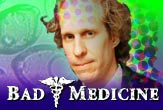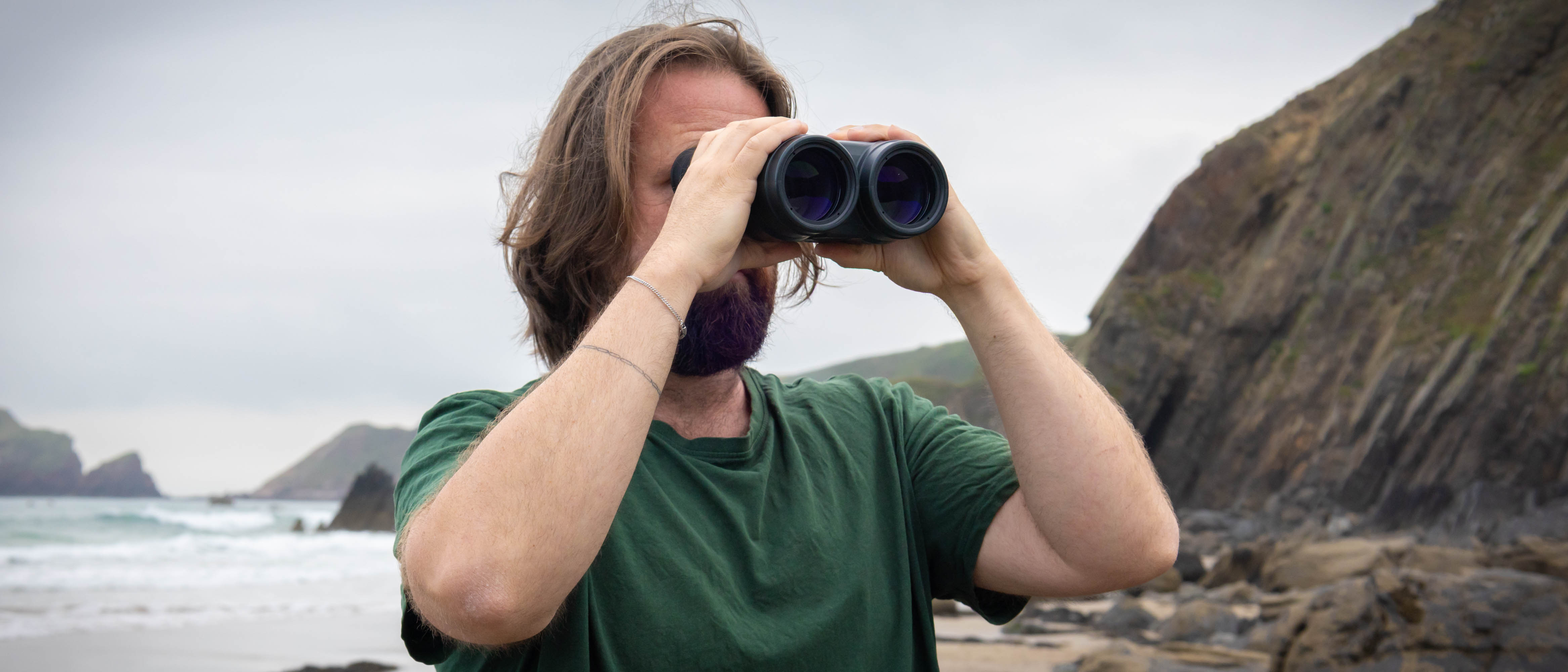Noni Nonsense: Miracle Juice or Scam in a Bottle?

A beautiful woman in a grass skirt and scallop shells covering her breasts beckons me to purchase a bottle of Polynesian noni juice, the latest health elixir to make the transition from multi-level marketing scheme to major outlets like Costco.
Although she's just a two-dimensional model pasted on the bottle, she's alluring enough to make many a customer ignore noni's steep price, awful taste and utterly false health claims.
According to this label, Polynesians have used noni juice for centuries to heal the mind, body and spirit, although a little asterisk after this statement tells me the FDA doesn't agree. Doctors continue to unlock the juice's natural health secrets, although another asterisk indicates this statement is false, too.
| Bad Medicine |
| Bad Medicine appears each Tuesday on LiveScience. Other naturally bad ideas: |
Web sites selling noni claim it cures everything from colds to cancer—well, at least the ones that haven't been shut down by the Federal Trade Commission. Noni juice, it seems, has all the markings of bad medicine: outrageous health claims, little evidence for these claims, and questionable marketing.
Trouble in paradise
Noni grows easily in warm climates throughout Southeast Asia and the South Pacific. The pungent, ripe fruit is a tough swallow, though, known in many tongues as the vomit fruit or rotten cheese fruit, and is consumed usually only in famines. Many South Pacific cultures use noni in traditional medicine.
Most noni juice sold in the United States contain a dash of noni cut with water and other juices to make it palatable. Noni juice is said to improve or cure arthritis, cancer, high cholesterol, diabetes, obesity, impotence and so on. It is commonly sold as Polynesian, Tahiti or Hawaiian noni.
Get the world’s most fascinating discoveries delivered straight to your inbox.
If Polynesians readily consumed noni juice, as marketers claim, then the results are surely minimal. Sadly, as a result of colonization, land confiscation and forced changes in lifestyle and diet, many Polynesians from the South Pacific through the Hawaiian Islands are in poor health.
In French Polynesia, home to Tahiti, 45 percent of women are obese and nearly another 30 percent are overweight, according to the World Health Organization. In parts of the Federated States of Micronesia, up to 80 percent of the population are obese and 50 percent are diabetic, according to the WHO. That slender lady on the bottle is an illusion.
Native Hawaiians are twice as likely to get diabetes and nearly six times more likely to die from it compared to whites on the islands, according to the U.S. Centers for Disease Control and Prevention. Health experts are trying to get the local populations to exercise more and to shun the western influence of cigarettes, alcohol, and fatty and salty processed foods, not drink more noni.
Trouble in the laboratory
What's the active ingredient in noni? It's xeronine, maybe. Chemist Ralph Heinicke, who worked for the pineapple industry, discovered minute traces of this unknown chemical in pineapples and then noni. Although he published his results in a non-peer-reviewed newsletter and never determined the chemical formula, he received a patent for xeronine in 1985.
Heinicke, now with the noni industry, claims that xeronine is an essential nutrient that enables proteins to enter and exit cellular walls. Noni also contains pro-xeronine, Heinicke says, which is converted to xeronine in the large intestines. While not implausible, none of this has been proven, and Heinicke's work remains a mystery to researchers today.
Aside from the xeronine "discovery," noni marketers point to a 1994 health study from the University of Hawaii showing how noni cured a certain type of lung cancer in laboratory mice. While promising, this result was marginal and relied on a protocol not endorsed by the National Cancer Institute.
Several more promising laboratory experiments have since been performed. Like oranges, noni might contain anti-cancer properties. Yet these minimally positive studies entailed injecting high concentrations of noni directly into an animal's cancerous organ or into a test tube with cancerous cells. Drinking noni—in the paltry concentration our taste buds will allow—has not been shown to reverse or slow cancer in any creature.
More illness than cures
A little science goes a long way in the alternative medicine world, which is why web sites claim that noni is "clinically proven" to cure cancer and treat other diseases. We're not there yet. Noni, like so many other traditional medicine plants, may well have therapeutic properties. Only more research will tell.
But noni is not entirely safe.
There have been several documented cases of individuals damaging their livers after drinking noni. More common is a kidney-related disease called hyperkalemia, or high potassium levels in the bloodstream. People prone to hyperkalemia know to avoid bananas or orange juice, naturally high in potassium, but many are unaware of the high potassium levels in noni.
The alternative food pyramid
Consumers should also be aware of multi-level marketing, or pyramid schemes, associated with noni. Noni for sale in stores seems legitimate, aside from the bit about being a useless health product. But around the world, noni is often sold by independent distributors who recruit other distributors to recruit other distributors and so on.
These distributors are hungry for your dollar, charging $30-100 for a month supply with instructions to drink the stuff at varying doses for months if not years.
With rampant obesity, diabetes and cancer in this world, one would think that a product that can cure obesity, diabetes and cancer would attract praise from doctors. Instead noni attracts the typical mix of profit-hungry marketers and dubious medical experts who write the books and work for the noni makers. Be strong and say "no" to the hot babes in grass skirts.
Christopher Wanjek is the author of the books “Bad Medicine” and “Food At Work.” Got a question about Bad Medicine? Email Wanjek. If it’s really bad, he just might answer it in a future column. Bad Medicine appears each Tuesday on LIveScience.
More to Explore
- The Biggest Popular Myths
- Top 10 Mysterious Diseases
- Urban Legends Debunked

Christopher Wanjek is a Live Science contributor and a health and science writer. He is the author of three science books: Spacefarers (2020), Food at Work (2005) and Bad Medicine (2003). His "Food at Work" book and project, concerning workers' health, safety and productivity, was commissioned by the U.N.'s International Labor Organization. For Live Science, Christopher covers public health, nutrition and biology, and he has written extensively for The Washington Post and Sky & Telescope among others, as well as for the NASA Goddard Space Flight Center, where he was a senior writer. Christopher holds a Master of Health degree from Harvard School of Public Health and a degree in journalism from Temple University.
 Live Science Plus
Live Science Plus





